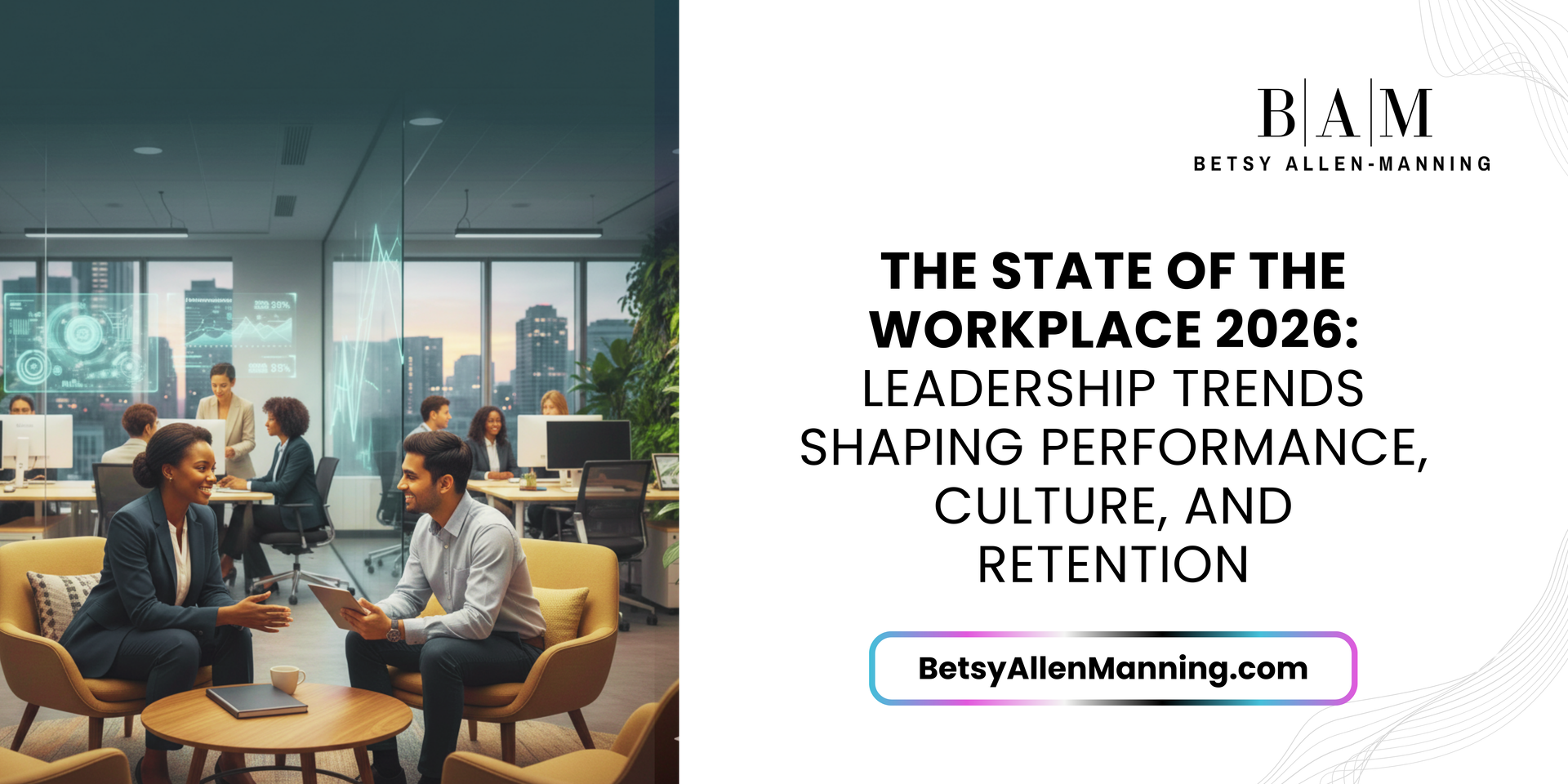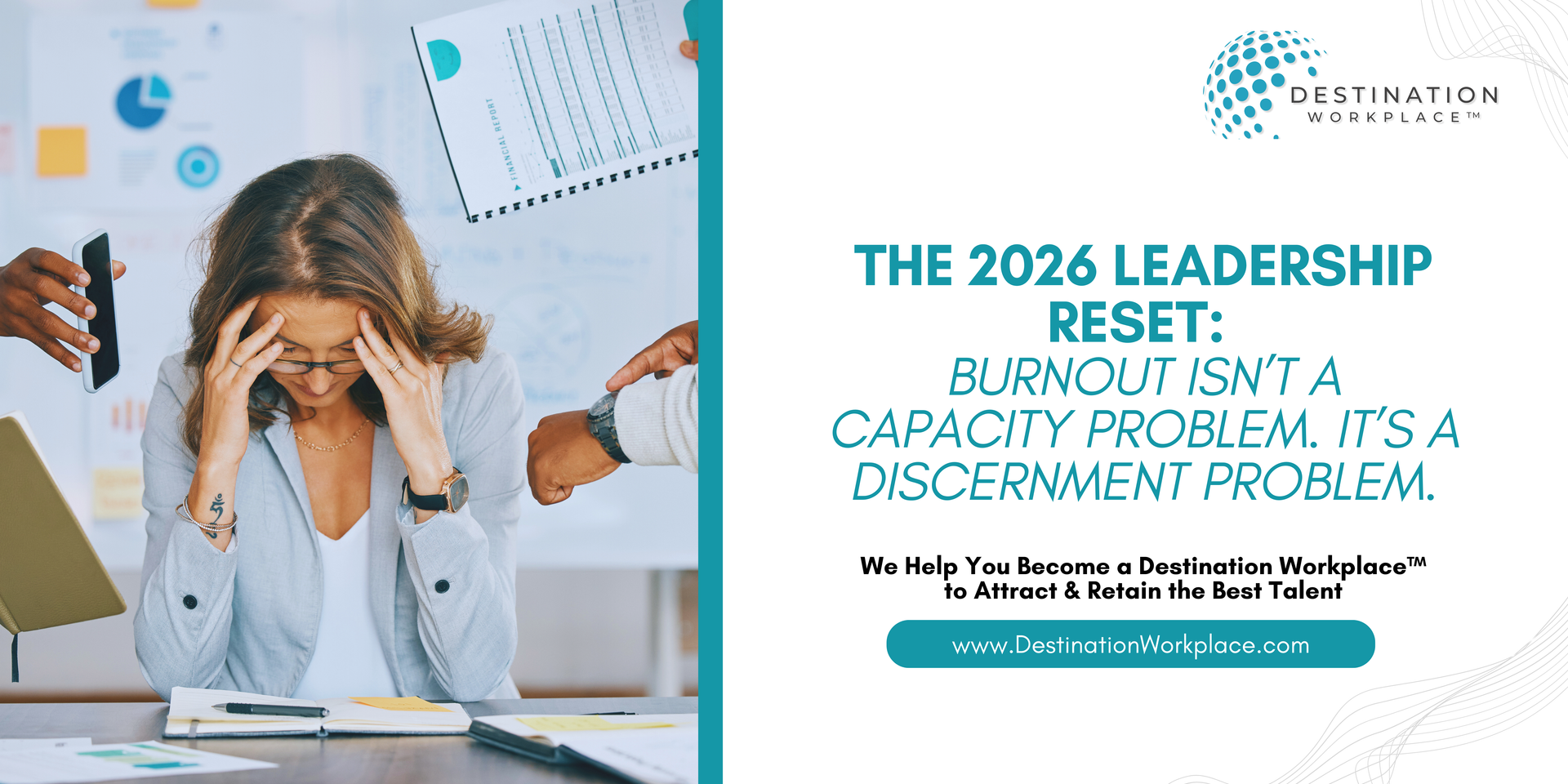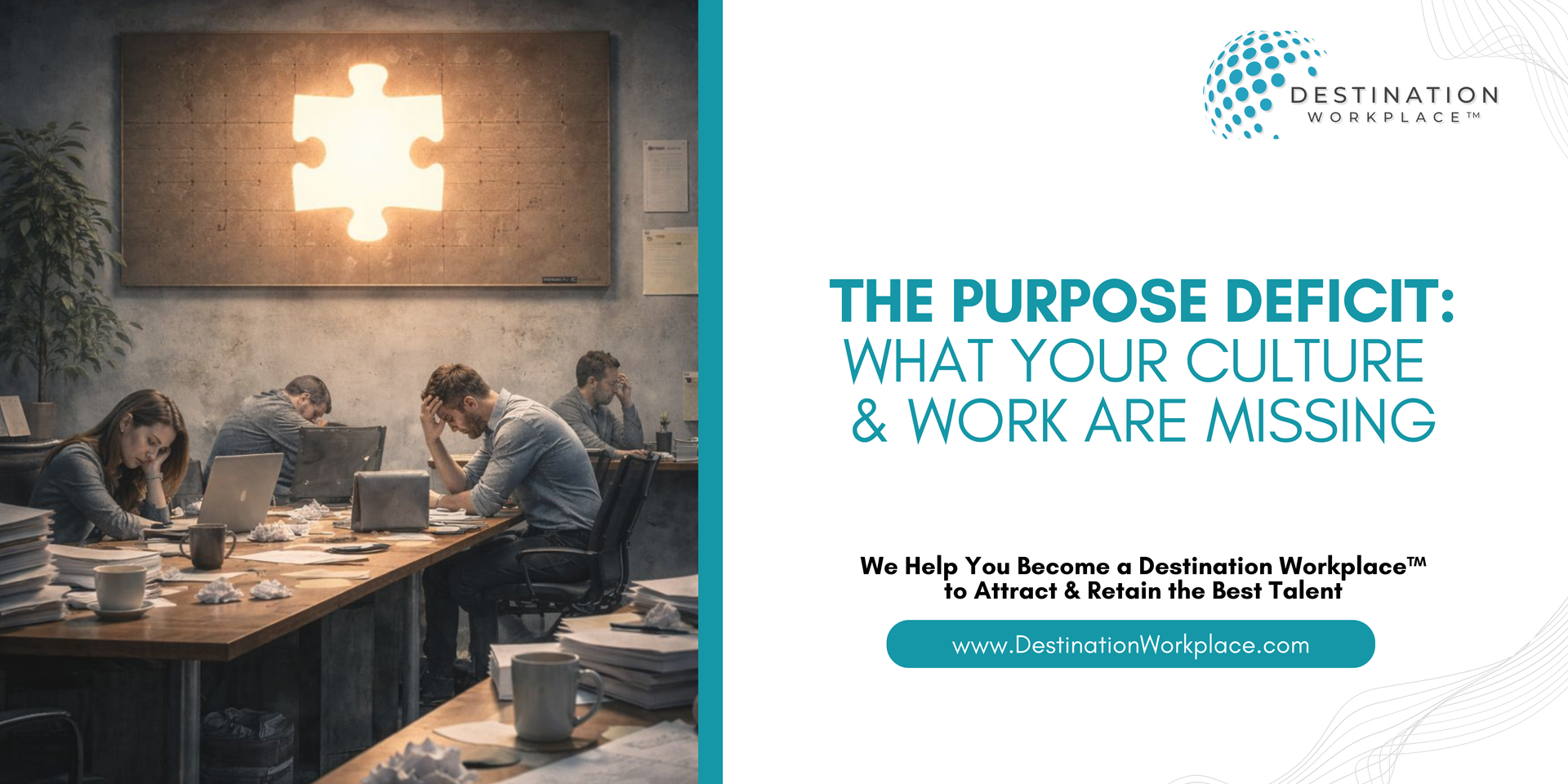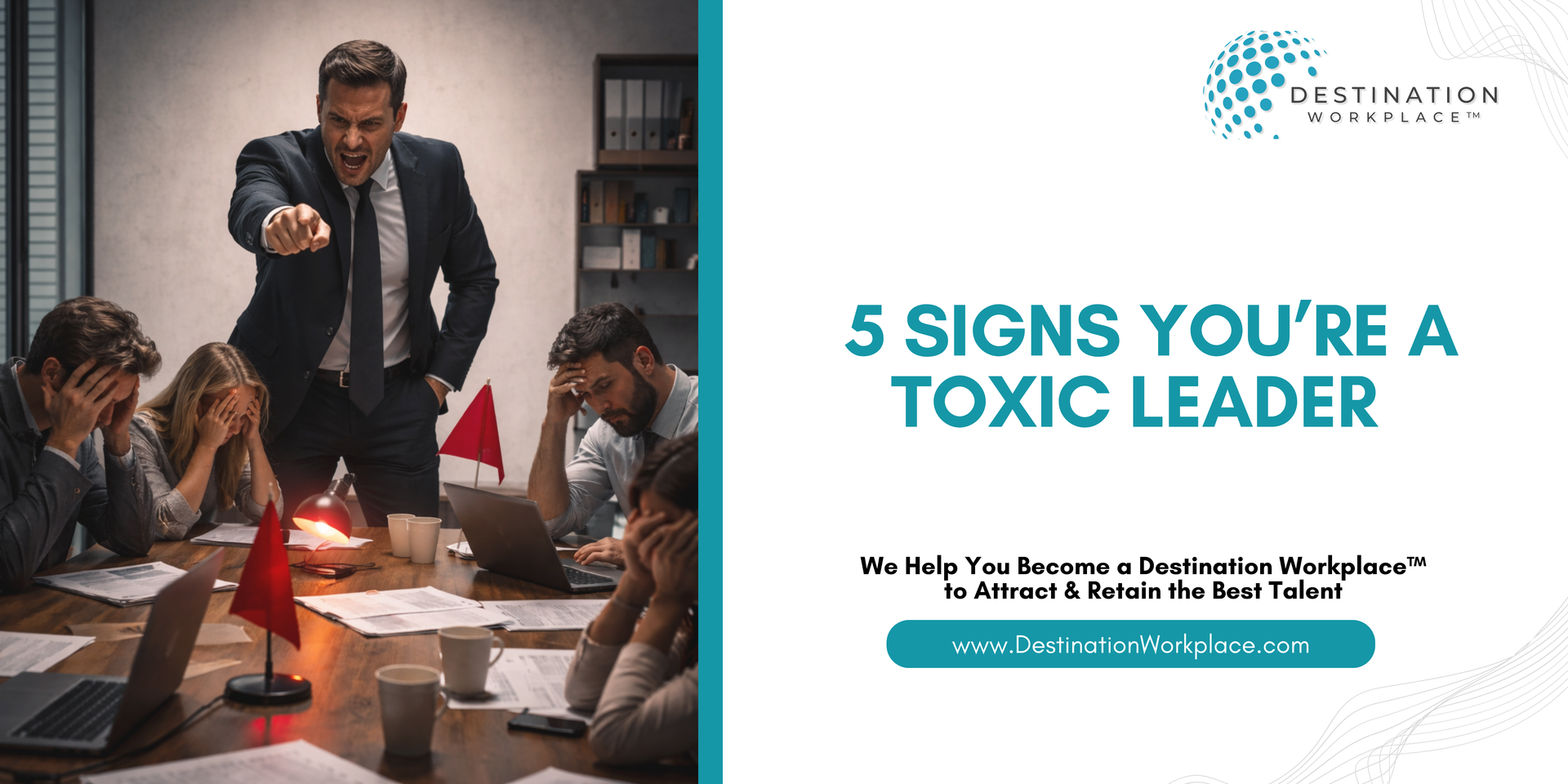Leading Through the Storm: Is Your Culture Crisis-Resilient?
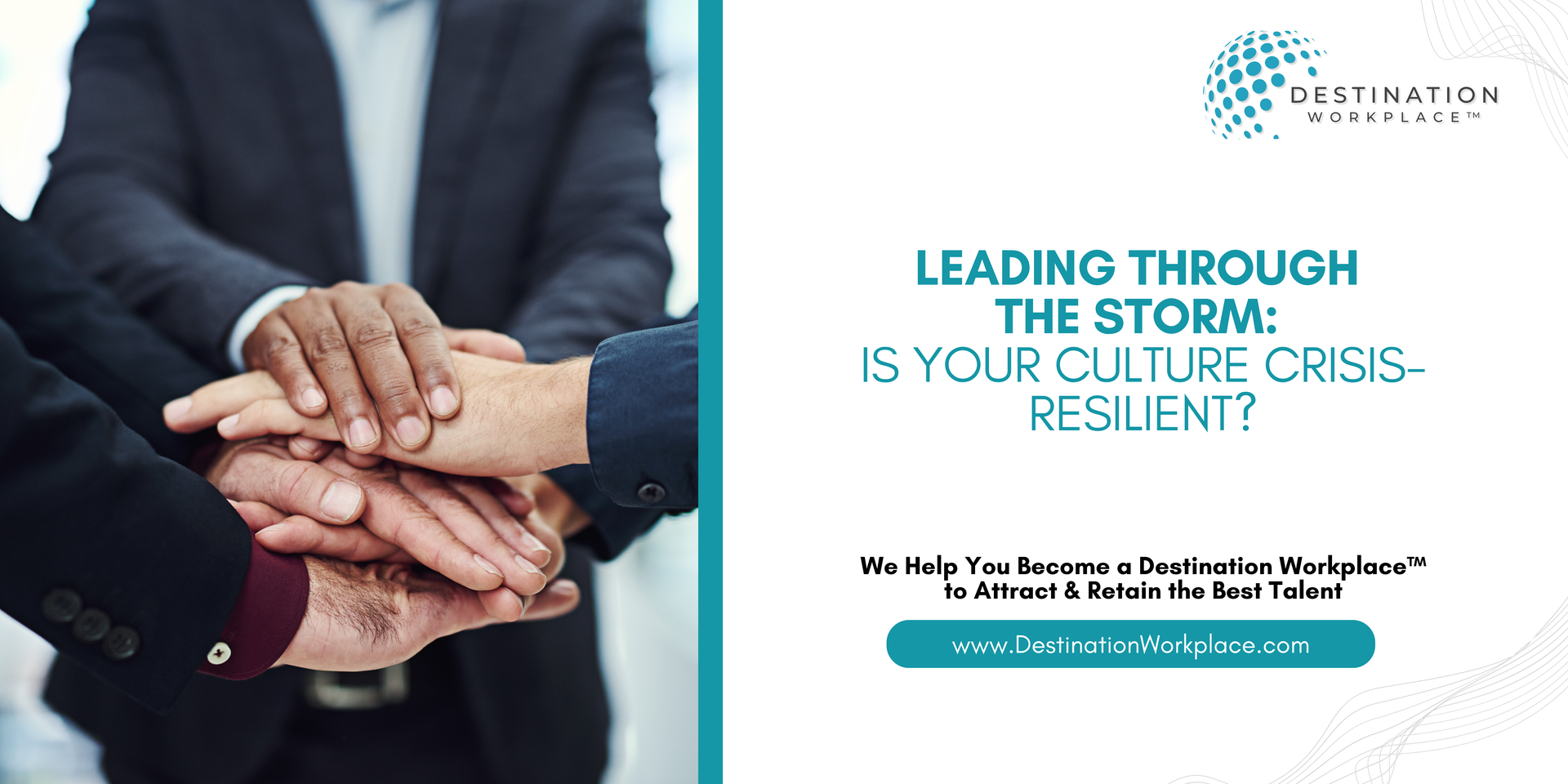
As the floodwaters rose across Texas this past July 4th, so did emotions: fear, uncertainty, grief. Families were displaced. Lives were lost. And even those outside the flood zone felt the ripple effect of devastation. While the news focused on emergency response and heartbreaking stories, a less obvious narrative emerged: What happens to people at work during a crisis like this?
Whether or not your employees were directly affected by the Texas floods, this is a critical moment for leaders to ask themselves: Do my people know I have their back when life hits hard?
Here's what the best leaders, Destination Workplace™ leaders, should be doing now (and always) when a crisis hits.
1. Offer Immediate, Human Support
You don’t need a PhD in psychology to be a good human. But you do need awareness and empathy.
According to the National Workplace Trends Study, 57% of employees say their well-being is a top factor in deciding whether to stay at a job. Yet, most leaders fail to respond in real-time when their people are struggling. This is your moment.
What You Can Do:
- Send a company-wide message checking in. Not performative. Not templated. Make it sound like a human wrote it. Because one did…you.
- Offer flexible hours or extra PTO for those directly affected.
- Create a private channel or forum where employees can share their needs discreetly.
- Bring in counselors for support or offer access to EAP (Employee Assistance Programs).
Ask, don’t assume. Everyone handles trauma differently. One employee might want time off. Another might just want to talk.
2. Show That Your Company Cares
You don’t need a six-figure philanthropy budget to show you care. What you need is initiative. The companies that become Destination Workplaces™ are the ones whose values aren’t just painted on the breakroom wall; they’re lived out loud.
Ways to Step Up:
- Host a donation drive for flood victims: clothing, water, toiletries, and pet supplies. Yes, fur babies have been affected too.
- Sponsor a volunteer day where employees can serve at shelters, clean-up crews, or food pantries.
- Match employee donations up to a certain amount.
- Use your company’s reach: social media, newsletters, etc., to spread awareness and rally others to join the cause.
Remember, this isn’t just charity, it’s part of your culture.
3. Communicate Openly
Silence during a crisis is not strength. It breeds confusion. And confusion kills morale. According to the National Workplace Trends Study, 57% of employees lose trust in organizations that lack transparency. That's a leadership problem, not a flood problem.
Communication Tips:
- Don’t wait for perfect answers. Communicate progress, even if it’s ongoing.
- Update regularly. People don’t mind bad news as much as they hate being left in the dark.
- Say what you do know and admit what you don’t.
- Encourage open dialogue: host “ask me anything” meetings or set up feedback forms.
4. Build a Crisis-Resilient Culture
If your company didn’t know what to do during this crisis, use that discomfort as a motivator. This isn’t about one event; it’s about creating a culture where people feel safe, supported, and seen, even in uncertainty.
Prepare Now to Prevent Chaos Later:
- Create a crisis response team that includes HR, leadership, and employee voices.
- Train managers on trauma-informed leadership: how to support mental health and de-escalate stress.
- Check on your remote employees; they often suffer in silence.
- Update your policies so the next time disaster strikes, you don’t have to write the playbook from scratch.
The Bottom Line?
This flood reminded us all how quickly life can change. And your people? They’re watching how you lead when it matters most. Will your workplace be remembered as one that rose with the waters, or one that left its people to tread them alone? Let’s stop calling these “soft skills.” This is real leadership. And it’s time for companies to act like it.
Learn how to build crisis-ready leadership and a culture that shows up when it counts. Partner with Betsy Allen-Manning and Destination Workplace™ at destinationworkplace.com. Let’s create a workplace where people feel supported, come rain or shine.
>>> Featured on FOX, CBS, NBC, and ABC,
Betsy Allen-Manning is a
leadership keynote speaker and high-performance expert who works with executives, managers, and teams to ignite commitment, elevate excellence & infuse purpose into their culture. Her
C.O.M.M.I.T. Framework™ and ‘DNA for Success’
keynote series deliver data-backed, high-energy presentations that strengthen leadership, enhance team performance, and build resilient cultures where people thrive and stay. Betsy is also the founder of
Destination Workplace™,
an award-winning leadership training company in Dallas, recognized for advancing leadership excellence and driving a culture of high performance in some of the world’s most respected organizations.






